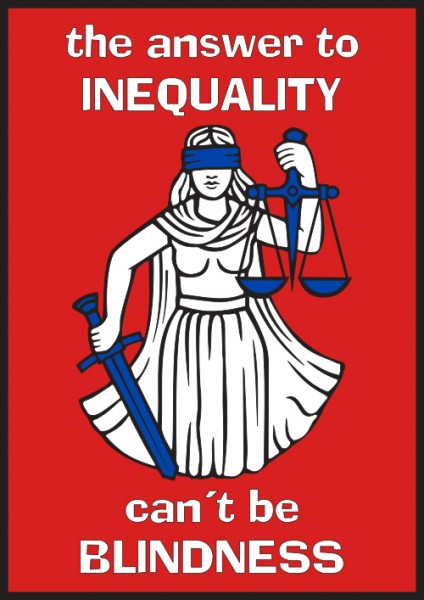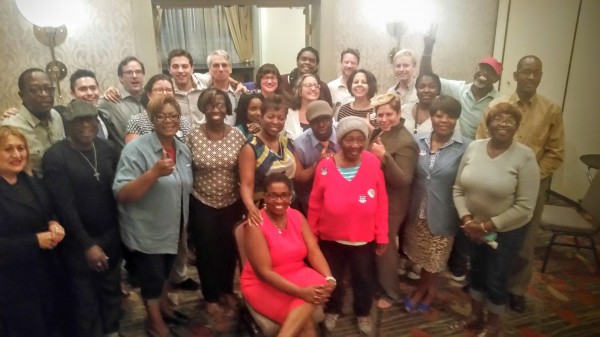 ALEC is back in Rhode Island. Republican legislator Pat Morgan confirmed she’s a member of the American Legislative Exchange Committee, a business-backed bill mill that pairs corporate donors with state legislators.
ALEC is back in Rhode Island. Republican legislator Pat Morgan confirmed she’s a member of the American Legislative Exchange Committee, a business-backed bill mill that pairs corporate donors with state legislators.
“I found it to be a really good group,” she told RI Future.
ALEC’s website lists Morgan as the state director in Rhode Island. Her 2016 financial disclosure form shows two trips to ALEC conferences – to San Diego, for $1,400 and to Phoenix for $1,100.  ALEC membership in Rhode Island was a hot button issue in 2012, when the group’s model Stand Your Ground bill became controversial after it helped exonerate George Zimmerman in the killing of Trayvon Martin. That year 24 local legislators, half of whom were Democrats, were members. By 2013, there were only six ALEC members in the General Assembly (though on p. 39 ALEC lists 12 members in 2013). In February 2015, RI Future reported that the last legislative membership in ALEC had expired on the last day of 2014. Morgan said she has been an ALEC member since January of 2015, but she was unsure of the exact month.
ALEC membership in Rhode Island was a hot button issue in 2012, when the group’s model Stand Your Ground bill became controversial after it helped exonerate George Zimmerman in the killing of Trayvon Martin. That year 24 local legislators, half of whom were Democrats, were members. By 2013, there were only six ALEC members in the General Assembly (though on p. 39 ALEC lists 12 members in 2013). In February 2015, RI Future reported that the last legislative membership in ALEC had expired on the last day of 2014. Morgan said she has been an ALEC member since January of 2015, but she was unsure of the exact month.
Morgan said she does not know anything about ALEC’s involvement with Stand Your Ground laws, and did not know the group had been controversial in Rhode Island.
She also said she does not where ALEC’s funding comes from. When informed it comes from corporations, she said, “I’m just as much against corporate welfare as you are. My idea is to do what’s right for Rhode Islanders, not for corporations.”
Her campaign opponent, independent Vincent Marzulo, is raising Morgan’s involvement in ALEC as a reason to vote against her. (Democrat Anthony Paolino is also running against Morgan).
“Her advocacy for private profit at the public’s expense raises serious questions concerning her commitment to the public good,” said Marzulo. “The American Legislative Exchange Council (ALEC) is a secretive, right-wing, Koch Brothers-funded corporate advocacy group that seeks private profit at the expense of public interest.”
Sam Bell, state director of the Rhode Island Progressive Democrats, added, “A far-right group that takes uses a money hose of corporate money to influence state politics, ALEC has wreaked great damage all across our country. From stand your ground laws and voter ID to an ocean of bills to help corporate special interests, ALEC has been uniquely effective at pushing awful public policy on the American people. It is hardly surprising that ALEC would align itself with Pat Morgan, a Wall Street politician known for supporting nutty right wing policies. For instance, Pat Morgan actually signed onto a bill to privatize roads and put tolls on cars.”
Morgan said doesn’t think of ALEC as being “conservative or liberal”. She said her relationship with ALEC has already paid dividends for Rhode Island. She said at a conference she learned about the drug Vivitrol, used to help people ween off drug addiction. She said the product is now used at the Adult Correctional Institute, in part because of her.
She said she doesn’t agree with everything ALEC pushes – citing a “session on international relationships.” She said she did not remember the specifics of the session. She also said there was an ALEC session on legalizing marijuana, an issue she said she does not agree with.
When asked if she thinks ALEC cares more about its corporate sponsors or her constituents, Morgan said, “I believe they care more about good policy that helps average people lead good lives.”
17 minutes into our interview, Morgan asked if she was on or off the record. I told her I identified myself as the editor of RI Future when I first called. Morgan feels I should have also informed her that I was writing a story. She hung up on me, and called back a few minutes later yelling. She said she does not think I have integrity.
House spokesman Larry Berman said the legislature does not pay dues of any ALEC legislators, as was the practice in 2012.
]]>
The progressive revolution in Rhode Island politics continues beyond Bernie Sanders as no less than seven progressive Democrats won primaries against conservative, often incumbent, opponents in Tuesday’s Democratic primary.
The biggest win for the progressive left was Marcia Ranglin Vassell toppling House Majority Leader John DeSimone in District 5, Providence. She won by just 17 votes, 677 to 660.
But across the state, progressive candidates bested more-conservative candidates. In Narragansett/South Kingstown, incumbent Teresa Tanzi fended off an opponent who had the backing of Mike Stenhouse, a conservative Koch-aligned activist, and the Republican she beat last election. In Portsmouth/Middletown, former legislator Linda Finn handily beat a candidate backed by House leadership. In Bristol/Warren, newcomer Jason Knight knocked out incumbent Jan Malik. And in Warwick, relatively unknown Jeanine Calkin, a Berniecrat, beat Senator William Walaska, a former ALEC member.

Also in Providence, first-time candidate Moira Walsh defeated incumbent Tom Palangio by 21 votes, 299 to 278. All told, five new progressives seem poised for seats in the state legislature. It seems guaranteed there will be more progressive legislators than Republican legislators next session.
But it wasn’t all good news.
In District 13, Providence, community activist Lisa Scorpio lost to house leadership-backed Ramon Perez by a wide margin. He won 512 votes, or 56 percent and she won 352 votes, or 38.5 percent. Anastasia Williams, an incumbent with a checkered past and close ties to leadership, beat Michael Gazdacko, who may have suffered after being pegged as a gentrifying developer. David Norton, whose campaign was often fueled by criticism of house leadership, lost to David Coughlin by 46 votes, 489 to 443. Bill DeWare, who became sick during the campaign, lost handily to William O’Brien.
On the Senate side, incumbent Juan Pichardo lost by about 100 votes to Ana Quezada. Doris de Los Santos, backed by many progressive Democrats, lost to Senator Frank Ciccone, a friend to labor but not so much the rest of the left. In a three-way race in Pawtucket, incumbent Jaime Doyle beat Matt Fecteau 40.3 percent to 37.4 percent.
Of the 12 legislative candidates the Rhode Island Progressive Democrats endorsed (as of mid-August), six won. The Working Families Party endorsed 10 candidates and eight of them won. Incumbent Eileen Naughton lost to Camile Vella-Wilkinson in Warwick/West Warwick and Dennis Lavallee lost to Jena Petrarca-Karampetsos.
“Voters are clearly hungry for bold progressive policy,” said Georgia Hollister Isman, Working Families Party Rhode Island state director. “These victories send a clear message to the legislature—it is time for some big changes.”
]]> In Bob Plain’s recent post, Stenhouse attacks Tanzi and Fogarty with mailers, we learned that the CEO of Rhode Island Center for Freedom and Prosperity is using his tax-exempt, social welfare organization, The Gaspee Project, to send out literature warning House District 34 voters against the dangers of voting for Democratic Representative Teresa Tanzi. As there is no Republican candidate on the ballot in November, the anti-Tanzi lit-piece calls on people to vote instead for Democratic primary opponent Ewa Dwierzynski.
In Bob Plain’s recent post, Stenhouse attacks Tanzi and Fogarty with mailers, we learned that the CEO of Rhode Island Center for Freedom and Prosperity is using his tax-exempt, social welfare organization, The Gaspee Project, to send out literature warning House District 34 voters against the dangers of voting for Democratic Representative Teresa Tanzi. As there is no Republican candidate on the ballot in November, the anti-Tanzi lit-piece calls on people to vote instead for Democratic primary opponent Ewa Dwierzynski.
I suppose, with some effort, I can find a way to understand the strategy of a Republican – er, sorry, multi-partisan – organization attacking a progressive incumbent who represents a more affluent region of South County by supporting her more conservative, Democratic Primary opponent. However, the tactic, like so much of what Stenhouse does within the ALEC-inspired, hyper-capitalist, houses of money-worship over which he ministers, is ham handed. Take, for example, the mailer’s graphic image color scheme. It meant to inspire fear and uses a color pallette faintly reminiscent of the poster for Wes Craven’s original A Nightmare on Elm Street. Except, instead of distressed, hand- stenciled lettering for the copy, the ominous and empty cliches are typed using drop-shadowed, Trebuchet font. And, instead of finding a photograph of Representative Tanzi depicting her as nefarious, or even as maladroit, the gray-scale shot of Tanzi is her smiling General Assembly website picture, Photoshopped to look like a missing person from an episode of Unsolved Mysteries. What is more, is that the call to action – “Vote for Ewa Dwierzinski” – is in an ectoplasm shade of green, floating over the tarmac-colored background and standing out as if she is the terrifying perpetrator who allegedly caused Teresa to disappear.
However, I am grudgingly willing to overlook form, if function is excellent. If the design is not inspiring, then perhaps the content is.
Is it?
No.
The entirety of the thread of propaganda hinges on how Tanzi’s vote for tolls on trucks will somehow raise prices on groceries for your family. How? Because rigged system! No facts. No statistics. No data. No surprise here. In fact, by substituting dysphemisms for debate and saying Tanzi supports a “rigged system,” and is a part of a “corrupt special interest majority,” Stenhouse insults the electorate. The social welfare organization implies that voters are unable to follow the debate through to the end, concluding for themselves whether or not a market-driven solution for repairing roads, paid for by the special interest group most responsible for the damage done to public thoroughfares, constitutes a “rigged system” and being a part of a “Corrupt special interest majority.”
What is ironic, is that Teresa Tanzi is among a handful of Rhode Island lawmakers who prioritizes pragmatism over politics and people over profits. She puts her own agenda dead last, preferring to weigh the pros and cons of issues and voting what the outcome of her debate concludes to do the most good, while resulting in the least harm. What Mike Stenhouse calls defying the will of the people and businesses, and harming economic growth, many Rhode Islanders see as refreshingly good governing.
Representative Tanzi has survived and thrived as a progressive Democrat in a chamber led by Democrats of a more Reaganesque variety. In spite of her left-leaning convictions, Tanzi has managed to earn the respect of House Leadership even after abstaining from voting for Nicholas Mattiello when he sought the Speakership following Gordon Fox’s resignation preceding his indictment. While others who abstained faced committee reassignment or primary opponents sponsored by leadership, Tanzi was assigned a seat on House Finance.
Furthermore, her record of key sponsorship does not remotely reflect supporting a “rigged system.” House Bill No. 7080: “Permits the town of Narragansett to establish a tangible business property tax exemption for local small business owners in an amount not to exceed thirty-five thousand dollars ($35,000).” So, she supports local small businesses. House Bill No. 7152: “Allows for property tax and motor vehicle tax exemption for veterans and their spouses.” So, she supports veterans and their families. Possibly the most telling bill of which she was key sponsor, however, was House Bill No. 6066 SUB B entitled “An Act Relating to Reporting and Accountability – Taxation – Rhode Island Economic Development Tax incentives Evaluation Act of 2013. This comprehensive structure, requiring thorough oversight of corporate tax incentives for Rhode Island economic development (I assume most of you have heard about 38 Studios?), is the opposite of corruption. So, Mr. Stenhouse, if you please, just sit down and eat your cake.
Stenhouse’s tactic is weak and predictable. It fails to provoke thoughtful voting. It fails, even, to be clever. And, as one who has a modicum of experience with political wetwork, it is poorly timed. If, in fact, the purpose is to help Tanzi’s primary opponent, it should have been sent weeks ago. Never go negative late. If a campaign is going negative, it has to go negative early or it looks desperate.
Most voters do not read the fine print. They do not know that a Republican, corporate interest backed, 501c(4), social welfare organization is responsible for the last-minute, hit-piece. They do not know that this type of electioneering is borderline section 527 status group activity. The fact that this actively dissuades debate of the actual issues, while limiting factual information, invites the argument that the Gaspee Project is not promoting the social welfare of the targeted recipients of the mailer. Rather, it is promoting the welfare of the unnamed donors and corporations who fund it. The candle in this shadow-money, social ill-fare, sender of political nasty-grams, is that it is conducted so poorly, it will probably do little or nothing to affect the race in Rhode Island House District 34. What it does do, however, is further expose just how feckless Mike Stenhouse and his think-tank / campaign action group really are.
]]> From the headlines, you would think that CNBC is the gold standard economic authority. After the cable news network released its 10th annual “America’s Top States for Business 2016” listing, in which Rhode Island was ranked dead last, local corporate media raced to bring the bad news to readers and viewers. CNBC ranks R.I. worst state for business, CNBC: Rhode Island ranked ‘Bottom State for Business‘, and RI back to dead last in new CNBC rankings are typical examples from the Projo, Channel 10 and Channel 12 respectively.
From the headlines, you would think that CNBC is the gold standard economic authority. After the cable news network released its 10th annual “America’s Top States for Business 2016” listing, in which Rhode Island was ranked dead last, local corporate media raced to bring the bad news to readers and viewers. CNBC ranks R.I. worst state for business, CNBC: Rhode Island ranked ‘Bottom State for Business‘, and RI back to dead last in new CNBC rankings are typical examples from the Projo, Channel 10 and Channel 12 respectively.
Missing from the Cassandra-like coverage is any hint that the rankings are meaningless and based on metrics that rate our state on how well our policies kowtow to the whims of business, not on how well they benefit the poor and middle class. Only Ted Nesi even approaches this angle in his coverage, but he did so through the lens of competing political discourse. But what about the economics of the report? Does it hold up under scrutiny? I’ve tackled the subject of economic rankings before, here and here, trying to bring some sort of real economic analysis to bear.
I asked Doctor of Economics Douglas Hall, Director of Economic and Fiscal Policy at the Economic Progress Institute, for some insights. Hall said that many of CNBC’s economic indicators “have a lot of merit and point to the need to address matters via public policy, such as repairing the state’s crumbling infrastructure and the need to help Rhode Islanders improve their educational attainment. But when you deconstruct their aggregate groupings,” said Hall, “many of the categories are deeply flawed and point to policies that would severely undermine the well-being and quality of life of working families in Rhode Island.”
One indicator the report uses is “union membership and the states’ right to work laws.” Low union membership and strong anti-union right to work laws contribute to a higher economic ranking for a state in CNBC’s report, yet Hall says that “research clearly shows that as unionization rates have gone down, the well-being of the American middle class has gone down.” In Hall’s view, this metric “taints the entire aggregate measure.”
Another metric, the CNBC aggregate category for the cost of doing business, considers the cost of paying wages and presumably, says Hall, “a state in which every employee worked for sub-poverty wages would get a very high grade in this category, while those paying living wages that can sustain a family and support a viable business community through demand for goods and services, would get a low grade in this category.”
It seems clear that these rankings of states by various business interests, including corporate entities such as CNBC, puppet organizations such as ALEC and members of the State Policy Network (which includes the RI Center for Freedom and Prosperity) and various Chambers of Commerce are are not objective measures of a state’s economic well-being, but are tools crafted to shape public policy to the advantage of large business interests and to the detriment of the poor and middle class.
The most sensible tactic in dealing with such garbage is to file it accordingly.
]]>That’s right, this is actually quite an old tatarella.
Back in that once upon a time of the late 70’s, before the VCR made home videos of theatrical films the norm, the world was a darker place. Not only was it impossible for your toddler to watch their favorite Disney film 9,000 times per week, there were three television networks and PBS, which tended to actually be the most entertaining channel of all because they ran footage of a British mental asylum titled Monty Python‘s Flying Circus. In such a universe, people listened to music on vinyl and 8-tracks while best-selling books had television advertisements. “Those were the days!”
For some reason probably due to the fact that Francis Ford Coppola had decided to throw tons of money into a fiery pit of madness that he called Apocalypse “My film isn’t about Vietnam, it IS Vietnam” Now, the folks at American Zoetrope needed cash quick. Little Georgie Lucas had just hit the jackpot with his silly little space movie about gay robots but not even a loan from that nerd was going to save the day.
 So in a bout of absolute brilliance, he went to NBC with a 2-for-1 deal. He said they could have the broadcast rights for the two GODFATHER films and re-cut them into a chronological super-film to broadcast over four evenings, calling it “A Novel for Television.” And, to make up for the cuts made by the censors, he threw in a pile of cut footage. Over the years, as Coppola has proceeded to not produce anything watchable, he has gone back to this routine several times, releasing on video cassettes of the Corleone epic refashioned and re-spliced to appease the absolutists who must see every frame he ever shot for these movies.
So in a bout of absolute brilliance, he went to NBC with a 2-for-1 deal. He said they could have the broadcast rights for the two GODFATHER films and re-cut them into a chronological super-film to broadcast over four evenings, calling it “A Novel for Television.” And, to make up for the cuts made by the censors, he threw in a pile of cut footage. Over the years, as Coppola has proceeded to not produce anything watchable, he has gone back to this routine several times, releasing on video cassettes of the Corleone epic refashioned and re-spliced to appease the absolutists who must see every frame he ever shot for these movies.
But there are two things at play that no one dares mention: this is a complete money grab at the expense of good taste and you must be absolutely bonkers to actually want to sit for 7 hours to see all this. Honestly, is there anyone stupid enough to sit on their behind for 7 hours of anything? Baseball games don’t last that long! Women have given birth in shorter lengths of time! I have been to weddings and funerals that had a quicker pace, and I say that as an Italian whose patriarchal grandmother’s maiden name was DePasquale (no relation)! Don’t people who are thinking of watching this have lives?
Of course, the other problem I have is that this whole thing is the storytelling equivalent of a decapitated horse’s head.
Let’s begin with the idea that you should rip apart GODFATHER II, which won Best Picture for a reason. Coppola and Mario Puzo did something that was truly groundbreaking with that film, they told two totally different stories divided by 50 years and an entire language! You could almost call it dialectical (I suspect Coppola is more of a Lefty than he lets on) with what they did, creating a thesis of the rising Corleone crime family under a young Vito (played by an Italian-language only DeNiro) juxtaposed with the anti-thesis of that family’s fall under a morally-decrepit Michael (played by Pacino). The film itself as a whole is a synthesis. But by splitting them up, you get an oddly-paced, over-long soap opera.
Of course, the original film is a more traditional picture. It is tightly edited and paced so that its 3 hours pass quickly. By re-inserting scenes that were left on the cutting room floor, the entire thing is thrown off kilter. Why bother? Is it absolutely necessary to listen to every burp and fart Luca Brasi makes before he meets his fate? Before there were the Star Wars Special Editions, there was The Godfather Epic.
No thanks. Instead, I prefer my own creatively-edited fun.
]]> At the 2016 Rhode Island Small Business Economic Summit (Summit), Grafton H. “Cap” Wiley IV told Governor Gina Raimondo, House Speaker Nicholas Mattiello and a room full of government officials and small business owners that “it would be great if we had enough revenue to get rid of the estate tax” or if we don’t have enough revenue, “look at an increase in the exemption.”
At the 2016 Rhode Island Small Business Economic Summit (Summit), Grafton H. “Cap” Wiley IV told Governor Gina Raimondo, House Speaker Nicholas Mattiello and a room full of government officials and small business owners that “it would be great if we had enough revenue to get rid of the estate tax” or if we don’t have enough revenue, “look at an increase in the exemption.”
“That’s something I’ve got my eye on,” said Mattiello, offering to collaborate with the business community to do something about it.
The idea of reforming the estate tax came out of a previous Summit, said Wiley, and the important thing, he continued, looking towards Raimondo and Mattiello, is that, “you guys are listening.”
“Rhode Island ends up at the bottom of a lot of the ratings of taxes and business climate,” said Wiley, and though he did not specify to what ratings he was referring, two annual business climate rankings, the SBEC (Small Business and Entrepreneurship Council)’s Small Business Policy Index and ALEC (American Legislative Exchange Council)’s Rich States, Poor States, include the mere existence of a state level estate tax as a negative in their questionable formulas for determining a state’s ranking.
The problem, says economist Peter Fisher, is that “the estate tax – which is paid only by the ultra-wealthy – doesn’t affect economic growth.”
Fisher says that Rich States, Poor States author Arthur Laffer, “and his co-authors devote an entire chapter to estate and inheritance taxes, incorrectly tagging them as ‘job killers’ that ‘strangle economic growth.’”
Laffer and company assert that states with an estate tax are losing ‘enormous amounts of accumulated wealth,’ and that this wealth would have created jobs, alleviated poverty, and increased tax revenue, but they fail to explain how this would happen. The wealth held by retirees typically is not the kind of capital normally used in job creation. The wealth that drives prosperity consists of real assets: natural resources, plant and equipment, public infrastructure, human capital, technological knowledge. By contrast, large estates typically consist of real estate, stocks and bonds, mutual funds, and other financial assets which could be located anywhere in the world. The future use of those assets is unaffected by where the person who owned them died.”
 So why would Mattiello be so eager to look at an idea that amounts to both failed tax policy and a giveaway to the mega rich? As Bob Plain showed, the last time RI messed with the estate tax, the burden of public services and infrastructure was shifted onto poor and middle class Rhode Islanders, allowing the rich and the mega rich to become richer still. These policies contribute to our ever increasing wealth inequality and pervert our democracy, tilting us ever faster towards an oligarchy represented by the likes of “Cap” Wiley, if we aren’t there already.
So why would Mattiello be so eager to look at an idea that amounts to both failed tax policy and a giveaway to the mega rich? As Bob Plain showed, the last time RI messed with the estate tax, the burden of public services and infrastructure was shifted onto poor and middle class Rhode Islanders, allowing the rich and the mega rich to become richer still. These policies contribute to our ever increasing wealth inequality and pervert our democracy, tilting us ever faster towards an oligarchy represented by the likes of “Cap” Wiley, if we aren’t there already.
Citing an Economic Progress Institute (EPI) fact sheet, Plain wrote, “The clear winners are a small number of wealthy taxpayers whose estates will pay less in taxes and in many cases, nothing at all starting next year. The clear losers are tens of thousands of low- and modest-income Rhode Islanders who will pay more in taxes next year. Unemployed homeowners and renters are among the biggest losers, because they will no longer qualify for property tax assistance and are not eligible for the earned income tax credit (EITC). Many of the lowest-wage workers will also be negatively impacted by the loss of the property tax refund, even with an eventual boost in the EITC.”
“SBEC’s stated mission, says Fisher, “is to ‘encourage entrepreneurship and small business growth,'” but “its lobbying activities reveal a very conservative, anti-government agenda.” ALEC, “is a mechanism by which corporations pay substantial sums of money to draft legislation benefiting them.” Neither group has the interests of state economies or average citizens in mind when they advance their agendas under the guise of “economic research.” These groups are made up entirely of the oligarchic prosperous and their servile, deluded sycophants.
Our gullible state leaders are not searching for real economic solutions to our state’s budgeting issues, they are instead looking for the excuses they need to pass the legislation their corporate masters demand.
To truly help our economy and budget, instead of eliminating the estate tax we should be increasing it.
Also, do yourself a favor and familiarize yourself with Peter Fisher’s website:
]]>
J.J. Abrams has come into his own as a film maker here, creating a film much better than both SUPER 8 and STAR TREK. It is pretty clear he sat down for a few months, broke down the STAR WARS movies into little bits, saved the juicy kernels, and threw out the chaff. He has reverse engineered and rebuilt a film series that needed it badly. Three and a half decades after EMPIRE STRIKES BACK, audiences finally get a sequel that is a worthy successor to what the late Irvin Kershner created in 1980, one of the best science fiction adventure films of that decade. A large amount of credit for this achievement lies with screenwriter Lawrence Kasdan, the scribe of EMPIRE, RETURN OF THE JEDI, and RAIDERS OF THE LOST ARK, he and Abrams have developed a tight, powerful story that keeps you glued to your seat. The special effects are brilliant, the camera work is tight, and the sets are magnificent.
The other part of why this is such a good movie is because George Lucas is not involved. If we are frank and brutally honest, the fact is that the man has some good story ideas but never was a good screenwriter. Indeed, Harrison Ford, who really owns this film, famously once told Lucas “you can write this sh*t but you can’t say it.” What happened with Lucas is actually a pretty instructional parable of ego gone berserk. When he made the original film, he was on a tight leash and had producers saying “no, George, we can’t do that” or “that is a ridiculous idea, George, get back to work.” This happened again on EMPIRE STRIKES BACK because Irvin Kershner, who was an old Hollywood pro, was able to have a respectful relationship with producer Lucas.
But after that, things really went south. Lucas became one of the most powerful people in the Hollywood Hills and no one could tell him he was wrong. THE RETURN OF THE JEDI was originally a massively different movie than what ended up on screen. Han Solo was supposed to die in the first act, Luke Skywalker and Princess Leia were not siblings, and the major action scenes were set on the Wookie home planet. The movie ended with the Emperor alive, Lando Calrissian dead, and Luke and Leia parting ways to create a new Jedi order and Republic, respectively. But then Lucas, who could never be wrong, insisted on these absurd rewrites that would conclude the series but also ruin the movie.
By the time Lucas got to the prequels, all hell broke loose. He hired a bunch of yes-men who would grant his every ridiculous wish and tell him he was a genius. “Sure George, a Jamaican Donald Duck is brilliant!” “Sure George, let’s turn Anakin Skywalker into a drop-out from Beverly Hills 90210, great idea!” “Sure George, why not turn the final battle between Obi-Wan Kenobi and Darth Vader into a Sega Genesis game, you are America’s Shakespeare!” But the sad fact is no one ever told him something that was right in front of his nose: you never turn a bit part Alec Guiness took for the money into the main character of his own movie series! For all his posturing nonsense about great narrative arcs from Joseph Campbell and banal analogies about the fall of the Roman Empire, Lucas never was able to create a protagonist in those movies who was actually likable. It is one thing to speculate about the life of Anakin Skywalker before he became Darth Vader, it is another thing to spend millions of dollars and close to ten years making three absolute clunkers that have as much appeal as an ingrown toenail.
All that is gone here, in fact word has it that Lucas feels burned because they threw out his original story and started from scratch. Instead of Ewoks or Gungans or Natalie Portman impersonating a bologna sandwich, we have the original cast in a genuinely exciting story that leaves you wanting more. Last month I wrote how THE PEANUTS MOVIE was a love letter to fans of that original work. This movie is more than that, it is the crazy make-up loving that every STAR WARS fan needs and the sequel we deserved.
]]>First, in the present moment, Europe must reassert its commitment to provide for the dignified treatment of the refugees… Second, as a necessary consequence of this commitment, Europe should impose clear rules and regulations. Control of the stream of refugees should be enforced through an administrative network encompassing all of the members of the European Union (to prevent local barbarisms like those of the authorities in Hungary or Slovakia). Refugees should be assured of their safety, but it should also be made clear to them that they must accept the destination allocated to them by European authorities, and that they will have to respect the laws and social norms of European states: no tolerance of religious, sexist or ethnic violence; no right to impose on others one’s own religion or way of life; respect for every individual’s freedom to abandon his or her communal customs, etc… Third, a new kind of international military and economic intervention will have to be invented – a kind of intervention that avoids the neocolonial traps of the recent past… Fourth, most important and most difficult of all, there is a need for radical economic change which would abolish the conditions that create refugees… When I was young, such an organised attempt at regulation was called communism. Maybe we should reinvent it. Maybe this is, in the long term, the only solution.
What Žižek fails to understand is this tone may seem unique or even radical in Europe, but the fact is that it is old hat here in America. What he is saying, with some superficial changes, sounds exactly like the type of Gilded Age American populist rhetoric that did pose a challenge to capitalists but failed, in some cases intentionally and some not, to adequately grapple with the challenges of race and racism on both sides of the Mason-Dixon line. 
Populist politicians such as Oklahoma Senator Thomas Gore, grandfather of the late Gore Vidal, put forward a simplistic argument that ending poverty would end racism, which they saw as a case of jealousy and resentment as opposed to a psychological abnormality with genuine neurological symptoms, as was shown by a 2007 article published in the journal Social Cognitive and Affective Neuroscience. Of course, other populists, the Southern Democrats who resented northern manufacturing and industrial concerns for their collaboration with Lincoln, were unapologetic racists who passed as many Jim Crow laws as humanly possible. I think Žižek can be classed in the former group but still is mistaken.
To borrow a phrase used by Žižek, this is symptomatic of a far greater issue, his genre of studies, post-Marxism. Turning to the 2004 graphic novel INTRODUCING MARXISM: A GRAPHIC GUIDE by Rupert Woodfin and Oscar Zarate, we find a section that gives a sufficient explanation of post-Marxism as a field of study. One must be mindful that, as with many classifications, these categorizations are sometimes problematic and that some of the figures mentioned, such as the late Stuart Hall, were genuinely valuable resources for their societies. But at the end of the book, the authors put forward a “10-point criticism of Marxism in our postmodern world” that is profoundly anti-socialist. They write:
1. Socialism does not work and neither does any other grand narrative. The ideologies associated with them are always false.
2. Classes are degenerating and disappearing and attempts to explain things in terms of them are reductionist and wrong. There are many other significant sources of identity and conflict, such as gender, ethnicity, sexual preference.
3. The state as such is always dangerous and cannot deliver effective social welfare; this can only be done by civil society.
4. Any form of central planning is inefficient and tends to corruption; markets are the only mechanism which allows for fair distribution.
5. The old left approach to politics always ends in authoritarian regimes which crush civil society. Politics should exist only at the local level, with local struggles over local issues.
6. Conflicts (antagonisms) are inevitable and while some may be resolved, this merely transforms and clears the ground for further, newer antagonisms. An overview of all conflicts and their eventual resolution is impossible. All we can have are understandings of particular situations at particular moments.
7. This is a good thing, since the resolution of all conflicts would result in a stale, rigid society. An ideal would be a pluralist democracy, providing a stable framework for many local conflicts.
8. Revolutions either cannot happen or end badly. The alternative is democratic transition.
9. Solidarity can exist within and across a range of different groups, it is a humanitarian gesture. A belief in class solidarity as the only valid form of solidarity is harmful to this process.
10. In an interdependent, globalized world, anti-imperialism has had its day. The world is too complex.
Here again we find the Cold War dogmatism, wrapped up in typical philosophical dribble, an argument that replaces revolution with the Alinsky/Obama-style ‘community organizer’ method.
The authors use as an example of the antagonisms in Marx the contradictions between a proletarian environmentalist who comes into conflict with the unionized worker in a polluting industrial mill. Ergo, class solidarity is false. But wait! What about Cuba? After the fall of the Soviet Union, the Cubans got around the collapse of their petroleum import markets by transferring over to a wholly sustainable infrastructure with renewable energy, organic agriculture, and other wholly green and wholly socialist solutions. In the past quarter-century, the once-infamously homophobic regime has softened up, now fully subsidizing gender reassignment surgery and creating a genuine dialogue about LGBTQQI liberation. The authors, fully aware of this, write off Castro as a dictator, as did Žižek in his 2010 LIVING IN THE END TIMES.
If we examine the 2000 POST-MARXISM: AN INTELLECTUAL HISTORY by Stuart Sim, we no mention of the great Marxist thinker W.E.B. Du Bois. The post-Marxist critique is that traditional Marxism failed to account for race, gender, sex, and sexuality. If one subscribes to the mainstream history, this is true. But in Du Bois we find the perfect rebuttal to this claim. He was using the historical materialist dialectic in his work and was in full support of socialism. But he also refused to join the American Communist Party in the Great Depression, when it was at its zenith, because he thought the Stalinist framing of the African American struggle in the south as a national liberation struggle, calling for a separate country to be formed out of the states where the majority of the Africans lived, the so-called ‘black belt’ theory, was untenable. Instead, he supported the integrationist position of the NAACP. In reply, the Communists called the NAACP a class enemy. By 1935, Du Bois had written his BLACK RECONSTRUCTION IN AMERICA, a Marxist history of the post-Civil War period, but still had not joined the CPUSA. With the Molotov-Ribbentrop Pact, the Party would do a classic political back-flip and abandon their radical militancy in opposition to racism, disgusting labor activists like A. Philip Randolph in the process. Du Bois is still a revolutionary and dangerous thinker. One must only investigate the ongoing controversy surrounding the firing of Dr. Anthony Monteiro from Temple to see department chairs trying to sweep Du Boisian Marxism under the rug.
This speaks to the flaw in Žižek’s and post-Marxism’s logic. These thinkers simply have been unable to grasp that there are in fact two Marxisms, the academic method of analysis based on the historical materialist dialectic and a quasi-religious political movement that did the bidding of the Soviet Union regardless of how un-Marxist it could be in action. If one looks at Stalin’s writings on dialectics, we get a profoundly crude philosophical opposites game. Lenin approached this former method with his study of Hegel.
But there is a deeper flaw to be addressed. Returning to the Woodfin and Zarate title, we are treated to the typical Trotskyist historical account of the Russian Revolution and the claim that the original Bolsheviks were indeed democratic. But this is demonstrably untrue. The events in the anarchist-controlled Ukraine under the leadership of Nestor Makhno, the writings of Voline, Alexander Berkman, or Emma Goldman, and revolt of the anarchist sailors at Kronstadt tell the story of the revolution betrayed not by Stalin but Lenin and Trotsky. Lenin knew that the Marxist dialectic dictated that democracy was the ultimate arbitrator in a true socialist order. But, following the thought of Noam Chomsky on this topic, he was unable to sacrifice his right-wing vanguardism that had been rebuked by the mainstream socialists in the Second International, who saw early on this was a recipe not for socialism but naked dictatorship not of the proletariat but the party. He replied to these left critics by calling Makhno an anti-Semitic brigand, dismissing Berkman and Goldman petit bourgeois, and killing the Kronstadt sailors. In 1938, Trotsky engaged in a similar course, writing:
How can the Kronstadt uprising cause such heartburn to Anarchists, Mensheviks, and “liberal” counter-revolutionists, all at the same time? The answer is simple: all these groupings are interested in compromising the only genuinely revolutionary current, which has never repudiated its banner, has not compromised with its enemies, and alone represents the future.
This is a recurring motif of all anti-libertarian socialist logic. Rather than engage anarchism and its founders as equals, they dismiss it as purely juvenile. In turn, anarchists in the academy, such as the excellent anthropologist David Graeber, have tried to stake out a whole new field with anarchism in the academy instead of rightfully asserting the mantle of the actual Marxists who were defeated by right wing opponents pretending to the mantle of historical materialism.
The anarchist Bakunin, who had studied Hegel as well, had been critical of Marx and Engels for their emphasis on parliamentary politics and leadership of the party, a position that Marx and Engels both adjusted in the writings on the Paris Commune, THE CIVIL WAR IN FRANCE, as well as later prefaces added to THE COMMUNIST MANIFESTO. Daniel Guérin, author of the slim yet extremely valuable ANARCHISM: FROM THEORY TO PRACTICE, wrote:
[T]he friction between Bakunin and Marx arose mainly from the sectarian and personal way in which the latter tried to control the International, especially after 1870. There is no doubt that there were wrongs on both sides in this quarrel, in which the stake was the control of the organization and thus of the whole movement of the international working class. Bakunin was not without fault and his case against Marx often lacked fairness and even good faith. What is important for the modern reader, however, is that as early as 1870 Bakunin had the merit of raising the alarm against certain ideas of organization of the working-class movement and of proletarian power which were much later to distort the Russian Revolution. Sometimes unjustly, and sometimes with reason, Bakunin claimed to see in Marxism the embryo of what was to become Leninism and then the malignant growth of Stalinism. Bakunin maliciously attributed to Marx and Engels ideas which these two men never expressed openly, if indeed they harbored them at all… Bakunin translated Marx’s major work, DAS KAPITAL, into Russian, had a lively admiration for his intellectual capacity, fully accepted the materialist conception of history, and appreciated better than anyone Marx’s theoretical contribution to the emancipation of the working class.
Žižek, in turn, has said the following of libertarian socialism:
Žižek: I certainly can understand where the appeal of anarchism lies. Even though I am quite aware of the contradictory and ambiguous nature of Marx’s relationship with anarchism, Marx was right when he drew attention to how anarchists who preach “no state no power” in order to realize their goals usually form their own society which obeys the most authoritarian rules. My first problem with anarchism is always, “Yeah, I agree with your goals, but tell me how you are organized.” For me, the tragedy of anarchism is that you end up having an authoritarian secret society trying to achieve anarchist goals. The second point is that I have problems with how anarchism is appropriate to today’s problems. I think if anything, we need more global organization. I think that the left should disrupt this equation that more global organization means more totalitarian control…
BS: You describe the internal structure of anarchist groups as being authoritarian. Yet, the model popular with younger activists today is explicitly anti-hierarchical and consensus-oriented. Do you think there’s something furtively authoritarian about such apparently freewheeling structures?
Žižek: Absolutely. And I’m not bluffing here; I’m talking from personal experience. Maybe my experience is too narrow, but it’s not limited to some mysterious Balkan region. I have contacts in England, France, Germany, and more — and all the time, beneath the mask of this consensus, there was one person accepted by some unwritten rules as the secret master. The totalitarianism was absolute in the sense that people pretended that they were equal, but they all obeyed him. The catch was that it was prohibited to state clearly that he was the boss. You had to fake some kind of equality. The real state of affairs couldn’t be articulated. Which is why I’m deeply distrustful of this “let’s just coordinate this in an egalitarian fashion.” I’m more of a pessimist. In order to safeguard this equality, you have a more sinister figure of the master, who puts pressure on the others to safeguard the purity of the non-hierarchic principle. This is not just theory. I would be happy to hear of groups that are not caught in this strange dialectic.
Žižek is correct in his statement, there are some anarchist groups that follow the religious Marxism paradigm and behave as cults, positioning themselves as a Protestant alternative to the Leninist orthodoxy. But on the same token, groups like the Industrial Workers of the World and the Spanish CNT-FAI are not interested in this behavior, they instead are continuing to work to form labor unions in unorganized workplaces that carry within them a revolutionary vision of democracy.
Some years ago, Dr. Norman Finkelstein wrote “A rite of passage for apostates peculiar to U.S. political culture is bashing Noam Chomsky.” This is true of Žižek, who has claimed that Chomsky defended the Khmer Rouge, a tired and oft-repeated mischaracterization of statements made regarding the genocide in East Timor so to justify the post-Marxist reliance on obscurantism and polysyllable verbiage while delegitimizing Chomsky’s activism. The reality is that Chomsky, a member of the IWW and long-time advocate of direct democracy, rejects the deification of Marxism but arguably is more of a historical materialist in praxis than Žižek is.
The real challenge for post-Marxism and Žižek is to stop with the mental gymnastics and confused polysyllables to figure out why the USSR failed, historical materialists have been presenting the answer to everyone for almost a century. Instead, the discussion must shift to a critical re-introduction of the Marxist-Lenininist and Trotskyist texts, along with Du Bois, augmented with an understanding that the philosophy did not transfer into praxis. I in fact see a real value to works like STATE AND REVOLUTION or Stalin’s work on the national question. But I also know a real scholar and critic must understand these were deeply flawed men with profound gaps. Is Žižek capable of this?
]]> We are now through July and, to that extent, the almost done with entire summer movie season. With releases like ‘Mad Max’ and ‘Jurassic World,’ we have seen a plethora of by-the-numbers blockbusters that all seem strangely familiar. This is not an accident; rather, there is a basic grammar and vocabulary that defines the programming of any and all action films. As early as the works of Abel Gance, it was understood that editorial tricks could be used to manipulate viewers and generate reactions on a psychological level. This was later codified by the Soviet film makers Lev Kuleshov and Sergei Eisenstein, whose work remains extremely tenable despite the collapse of the USSR. Kuleshov’s experiments demonstrated the way audiences react and insinuate their own interpretations into viewing materials when they have no real reason to do so, whereas Eisenstein formulated his theory of the montage using the Hegelian-Marxist dialectic to describe film in the context of historical materialism.
We are now through July and, to that extent, the almost done with entire summer movie season. With releases like ‘Mad Max’ and ‘Jurassic World,’ we have seen a plethora of by-the-numbers blockbusters that all seem strangely familiar. This is not an accident; rather, there is a basic grammar and vocabulary that defines the programming of any and all action films. As early as the works of Abel Gance, it was understood that editorial tricks could be used to manipulate viewers and generate reactions on a psychological level. This was later codified by the Soviet film makers Lev Kuleshov and Sergei Eisenstein, whose work remains extremely tenable despite the collapse of the USSR. Kuleshov’s experiments demonstrated the way audiences react and insinuate their own interpretations into viewing materials when they have no real reason to do so, whereas Eisenstein formulated his theory of the montage using the Hegelian-Marxist dialectic to describe film in the context of historical materialism.
The first true American blockbuster was without any doubt the DW Griffith film ‘Birth of a Nation.’ Released in May 1915, it was the first multi-reel epic film that broke every previous convention, going beyond the usual length and breadth of the 15-minute short films and tackling one of the greatest blood baths in American history, the Civil War. But Griffith also created a picture that would do great harm to our society for decades. The second half of the picture retells the story of Reconstruction as a debacle, featuring black men as imbeciles, mixed-ethnicity ‘mulattoes’ as sexual beasts, and the Ku Klux Klan as heroic defenders of Southern female virtue. As a result of the film’s release, the Klan saw its ranks explode and the civil rights movement’s gains were set back decades.
Several months ago, I had the opportunity to sit down with MIT linguist Dr. Noam Chomsky. Based off the work of Warren Buckland, Michel Colin, and others, there is now a veritable sub-branch of cinema studies that has taken prior work dealing with the semiotics of cinema and re-written the genre using the Chomskyan theories of transformative generative grammar. The resulting conversation is quite instructive to our own dialogue about race and racism in America as well as our thought process regarding what we would now call the summer blockbuster.
]]> While the celebrations have passed for American Independence Day, in Cape Verde and its diaspora, which has a significant representation in Rhode Island, the party has just begun. July 5th and 6th mark the fortieth anniversary of the independence of Cape Verde from Portuguese colonialism and the foundation of the Republic. This anniversary is particularly impressive because it occurs in close temporal proximity to the end of the American presence in Vietnam, symbolic of what was a series of major victories for the anti-colonialist struggle in the developing world and a high point in the foreign policy of the Soviet Union, Cuba, and the People’s Republic of China.
While the celebrations have passed for American Independence Day, in Cape Verde and its diaspora, which has a significant representation in Rhode Island, the party has just begun. July 5th and 6th mark the fortieth anniversary of the independence of Cape Verde from Portuguese colonialism and the foundation of the Republic. This anniversary is particularly impressive because it occurs in close temporal proximity to the end of the American presence in Vietnam, symbolic of what was a series of major victories for the anti-colonialist struggle in the developing world and a high point in the foreign policy of the Soviet Union, Cuba, and the People’s Republic of China.
The islands, called Cabo Verde in Lusophone dialect, were discovered by Portuguese colonist Alvise Cadamosto and established as a permanent holding of the Empire in 1462. As an archipelago off the western coast of continental Africa, it was a major hub in the transport of human beings captured in the trans-Atlantic slave trade. After the Portuguese abolished slavery in 1869, Cape Verde continued to be held as a colony by the Empire and an exodus of immigrants began, creating a diaspora with population centers in New England.
Beginning in 1956 with the foundation of the PAIGC (Partido Africano da Independência da Guiné e Cabo Verde/African Party for the Independence of Guinea and Cape Verde) by Amílcar Cabral, his brother Luís, Aristides Pereira, Fernando Fortes, Júlio Almeida and Elisée Turpin, the colonized peoples engaged in a multi-decade anti-colonialist struggle that included the fight for Cape Verde and Guinea Bissau but also embraced a continent-wide struggle for freedom, such support for the anti-apartheid movement in South Africa. After Amílcar Cabral visited Cuba in 1966, Fidel Castro volunteered military advisors and doctors, while the USSR and China provided rifles and military training. This chain of events coincided with American efforts in Indochina, so the military support given the Portuguese, led by the Fascist junta of Antonio Salazar, was particularly brutal and featured napalm and other materiel being used in Asia. It was the philosopher Frantz Fanon who wrote in his classic THE WRETCHED OF THE EARTH:
National liberation, national renaissance, the restoration of nationhood to the people, commonwealth: whatever may be the headings used or the new formulas introduced, decolonization is always a violent phenomenon… Decolonization, which sets out to change the order of the world, is, obviously, a program of complete disorder. But it cannot come as a result of magical practices, nor of a natural shock, nor of a friendly understanding. Decolonization, as we know, is a historical process: that is to say that it cannot be understood, it cannot become intelligible nor clear to itself except in the exact measure that we can discern the movements which give it historical form and content. Decolonization is the meeting of two forces, opposed to each other by their very nature, which in fact owe their originality to that sort of substantification which results from and is nourished by the situation in the colonies. Their first encounter was marked by violence and their existence together—that is to say the exploitation of the native by the settler—was carried on by dint of a great array of bayonets and cannons.
Amílcar Cabral was assassinated in 1973 by the Portuguese in an effort that was attempting to ultimately foil the resistance movement. But despite this setback, it proved to be impossible to hold back the forces of change. Following a revolt in Portugal that unseated the Salazar regime, the new government engaged in direct negotiations with the anti-colonial militias, resulting in the foundation of an independent Cabo Verde in July 1975, just several months after the fall of Saigon and America’s evacuation from Vietnam.
Every commemoration, however, must contain within it a lesson for today. It is very simplistic to merely re-tell a history and not include some lessons. First, of course, there is a great deal of inspiration to be gleaned from the achievements of Cape Verdeans in our midst. The diaspora has provided us with a slew of notable figures who have made great strides despite the power of racism and structural discrimination in out society. Second, there is the demonstration that the people, united, will never be defeated. Today we face struggles that, in many ways, are much more astounding than the challenge of twentieth century decolonization, be it at home or abroad. But despite these challenges, it seems apparent that they can and ultimately always will fall to the power of the people. It might take time, but it does happen. And finally, consider one of the famous line of Amílcar Cabral: “Tell no lies, claim no easy victories.” It is very easy to do what is acceptable and serves the powerful. It is much more difficult to take the road of genuine scholarship, speaking truth to power, and challenging those who would exchange you riches for your soul. Only with adherence to the truth and solidarity with the facts will true change come in the world.
7/6, 4:35 PM: I could not resist adding this stellar hip-hop single by Agent of Change, truly great music.
]]>




